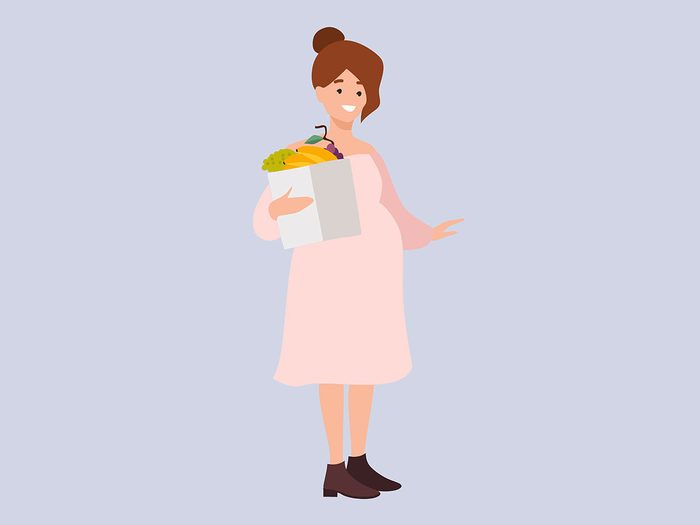
What should you eat?
Everything you eat is passed to the fetus. So, eating a wide range of healthy foods is key to ensuring your baby has the best start. Choose fresh rather than processed foods whenever possible—the fewer additives you consume, the safer your baby will be. (Also, learn if pregnant women can drink coffee.)
Here, the key nutrients you and your baby need.
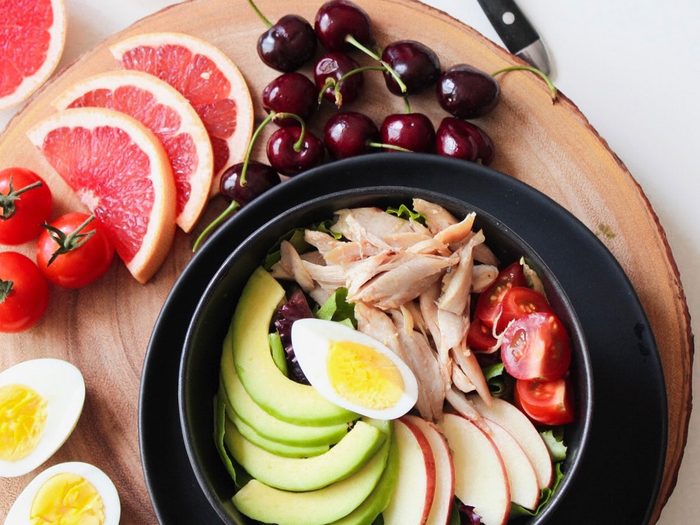
Protein
A little extra protein is recommended during pregnancy, but most women eat more than enough. A small portion of lean meat, fish, eggs, legumes, or nuts twice a day is sufficient. If you are vegetarian, your protein and iron intake may be lower. You should always eat beans or legumes in combination with cereal foods such as pasta, couscous, and rice, and you may consider taking an iron supplement. After the first three months of your pregnancy, you will need a folic acid supplement. But you should continue eating high-folate foods. Try our breakfast sandwiches featuring toasted sheet pan eggs.
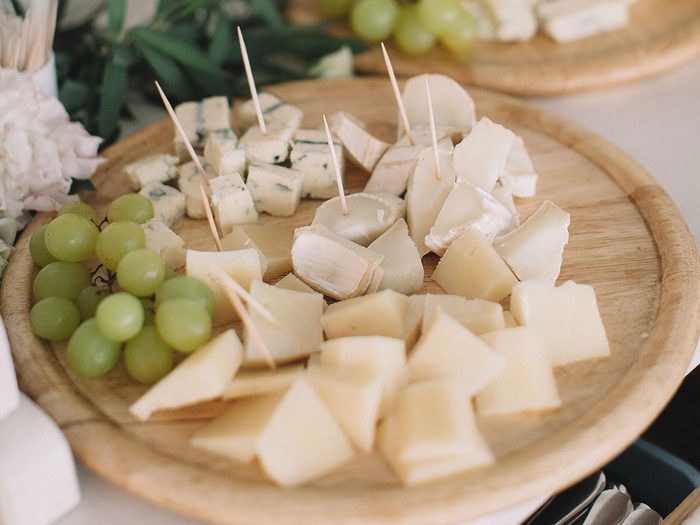
Calcium
Your body absorbs calcium more efficiently when you are pregnant, and you need to consume at least 700 milligrams daily. You can easily achieve this by having milk, cheese or yogurt twice a day-a 225 ml (8 fl oz) glass of milk contains 297 milligrams of calcium. If you prefer not to eat too many dairy products, choose soya drinks and yogurts (check the nutrition info for calcium amounts). Try our butternut squash mac & cheese.
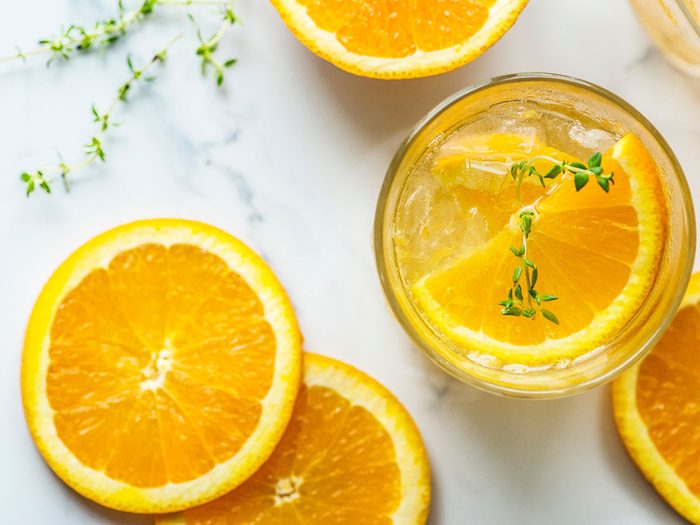
Vitamin A
During the last three months of your pregnancy you can consume a little more vitamin A. But proceed with caution. Eat plenty of orange and red fruit and vegetables such as apricots, peppers and carrots. These are all high in beta carotene, which is converted into vitamin A by your body as and when you and your baby require it. But don’t forget that liver and liver products such as pâté should be avoided throughout your pregnancy as they contain very high levels of vitamin A. Try our brown butter and orange cauli-couscous salad.
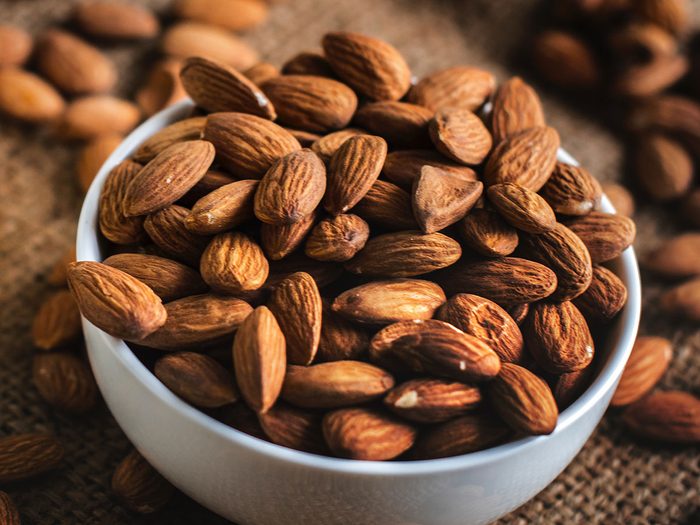
Iron
Your doctor can check if you have adequate iron levels at the beginning of your pregnancy. If these are satisfactory, you will not need to take a supplement. Iron absorption is enhanced during pregnancy, so eat foods rich in iron such as red meat, dark poultry meat, eggs, pulses and nuts. Also, tea interferes with your body’s ability to take up iron, so it is better to drink it between meals rather than with food. Try our veggie, fruit, and nut salad.
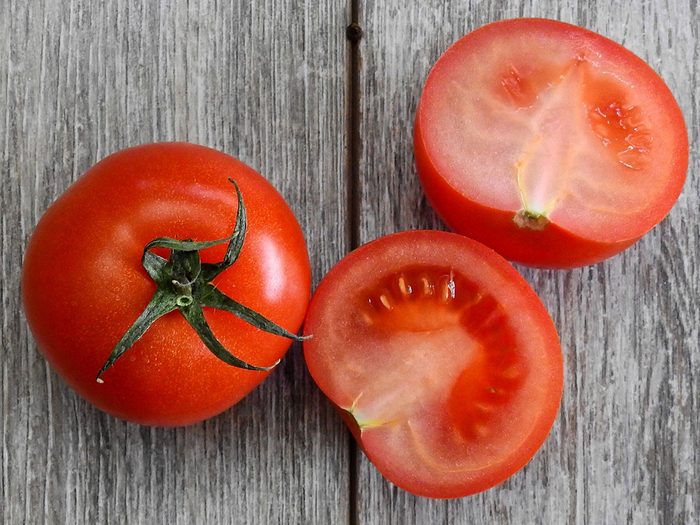
Vitamins C and E
New research shows that high levels of vitamins C and E can reduce the risk of pre-eclampsia. This rare but serious complication in pregnancy causes a severe rise in blood pressure. The richest sources of vitamin C are citrus fruit, peppers, strawberries, kiwi fruit, pineapple and tomatoes. To obtain plenty of vitamin E, eat avocados, safflower and sunflower oils, sunflower seeds, almonds, hazelnuts, butter and margarine. Try our simple slow-cooker tomato sauce.
Next, learn which supplements every woman needs.
